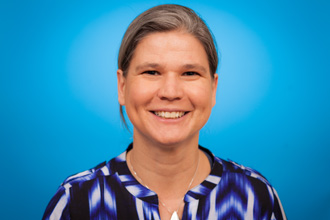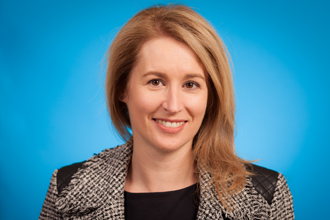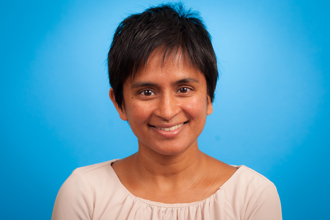Four St. Michael’s scientists awarded Canada Research Chair titles

By Christy Janssens
Understanding and addressing anti-Indigenous racism in health services. Eliminating barriers to accessing sexually transmitted disease services. Improving HIV prevention strategies. Better understanding epidemics. Four respected scientists from the MAP Centre for Urban Health Solutions at St. Michael’s Hospital have already made significant contributions in their fields.
Now, they are being appointed the prestigious titles of Canada Research Chairs (CRC).
The Canada Research Chair program is a government initiative that invests in top Canadian researchers to maintain a diverse body of world-class researchers and make Canada one of the world leaders in research and development. Tier 1 Chairs are considered outstanding researchers and world leaders in their fields. Tier 2 Chairs are exceptional emerging researchers.
The four new CRC chairs from St. Michael’s will use these positions to bring new solutions to health care in areas such as Indigenous health, sexually-transmitted infection (STI) prevention in populations experiencing disadvantage, optimizing strategies to end new HIV infections in Canada and better understanding how epidemics spread.

Dr. Janet Smylie
Dr. Janet Smylie
Dr. Smylie, appointed a Tier 1 Canada Research Chair in Advancing Generative Health Services for Indigenous Populations in Canada, is a globally-recognized applied Indigenous health researcher and a scientist who leads the Well Living House Action Research Centre at St. Michael’s. Dr. Smylie is respected by both academics and Indigenous community leaders for her consistent, innovative and tangible research that benefits communities.
“To my knowledge, I am the first self-identified Indigenous person with kin and land ties to what is now known as Canada to be granted a Tier 1 CRC in Health,” she says. “This leaves me feeling very honoured to have been recognized and at the same time very humbled by the accompanying responsibility of ensuring that this translates into some tangible benefits.”
Her research, in partnership with Indigenous communities using Indigenous models, standards and tools, explores the following questions: How can we ensure all First Nations, Inuit, and Métis peoples are counted into health policy and planning regardless of where they live? What ideas and practices already exist within those communities that can be put into practice? And how can anti-Indigenous racism in health services be addressed on individual and systemic levels?

Dr. Ann Burchell
Dr. Ann Burchell
People experiencing disadvantage are disproportionately affected by STIs and face more barriers to accessing health services to treat them. Dr. Ann Burchell’s research focuses on how to eliminate these barriers and apply practical strategies to prevent STI and STI-related cancers in high-risk populations.
Dr. Burchell is a scientist at the MAP Centre for Urban Health Solutions and the Department of Family and Community Medicine St. Michael’s Hospital. She is an Associate Professor at the Department of Family and Community Medicine at the University of Toronto. Appointed a Tier 2 Canada Research Chair in Sexually Transmitted Infection Prevention, Dr. Burchell says this funding underscores the importance of the team’s research.
“I am deeply honoured and humbled to receive a CRC award,” she says. “I am excited to work collaboratively over the next five years with community and health-care system stakeholders to seek evidence and identify what tools will work, and how and why they will do so.”

Dr. Darrell Tan
Dr. Darrell Tan
How can new HIV prevention technologies, like pre- and post-exposure treatments be optimized to end new HIV infections in Canada? Dr. Darrell Tan will draw from clinical training in infectious diseases, research training in clinical epidemiology and a background in influencing policy on HIV prevention in Canada, specifically around pre-exposure prophylaxis, to explore the answer.
A clinician-scientist in the department of Infectious Diseases at St. Michael’s and the MAP Centre for Urban Health Solutions, Dr. Tan was appointed a Tier 2 Canada Research Chair in HIV Prevention and STI Research. He says that the number of new HIV infections in Canada every year continues to stagnate, despite powerful medical tools and interventions to control it.
“This award will allow us to redouble our scientific and implementation efforts to expand access to these tools in the hope of ending these epidemics,” he says. “Receiving this CRC is a huge honour not only for myself but also for my team, our institution, our community partners and our study participants.”

Dr. Sharmistha Mishra
Dr. Sharmistha Mishra
Dr. Sharmistha Mishra’s research studies the prevention gaps and pathways of disproportionate risks that sustain infectious disease epidemics and tailored strategies that can reduce infections in a population, especially those vulnerable to STIs and HIV.
Awarded a Tier 2 Canada Research Chair in Mathematical Modeling and Program Science, Dr. Mishra is an international leader in mathematical modelling and epidemiology of HIV and other STIs. She is a clinician-scientist in the department of Infectious Diseases at St. Michael’s and the MAP Centre for Urban Health Solutions.
“I am grateful for the support to be creative and to challenge us as a lab to expand the scope and impact of our science in shifting narratives and driving meaningful change,” she says.
“This CRC means we get to keep pushing the envelope and think outside the box in how we answer questions about epidemics and outbreaks and the types of questions and solutions we pursue.”
About St. Michael’s Hospital
St. Michael’s Hospital provides compassionate care to all who enter its doors. The hospital also provides outstanding medical education to future health care professionals in more than 27 academic disciplines. Critical care and trauma, heart disease, neurosurgery, diabetes, cancer care, care of the homeless and global health are among the Hospital’s recognized areas of expertise. Through the Keenan Research Centre and the Li Ka Shing International Healthcare Education Centre, which make up the Li Ka Shing Knowledge Institute, research and education at St. Michael’s Hospital are recognized and make an impact around the world. Founded in 1892, the hospital is fully affiliated with the University of Toronto.
About Unity Health Toronto
Unity Health Toronto, comprised of Providence Healthcare, St. Joseph’s Health Centre and St. Michael’s Hospital, works to advance the health of everyone in our urban communities and beyond. Our health network serves patients, residents and clients across the full spectrum of care, spanning primary care, secondary community care, tertiary and quaternary care services to post-acute through rehabilitation, palliative care and long-term care, while investing in world-class research and education. For more information, visit www.unityhealth.to.
